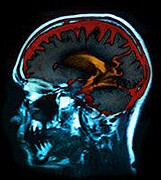Deterioration centers around global cognition, executive function
TUESDAY, July 7, 2015 (HealthDay News) — Patients who suffer a stroke are more likely to experience an accelerated decline in their global cognition and executive function for at least six years following the acute event, according to a report published in the July 7 issue of the Journal of the American Medical Association.
The study, led by Deborah Levine, M.D., M.P.H., an assistant professor at the University of Michigan Medical School and a staff physician with the Ann Arbor VA Healthcare System, focused on 23,572 participants in a larger U.S. National Institutes of Health-sponsored project that’s examining regional and racial differences in stroke mortality. The participants were 45 or older with no baseline cognitive impairment. Five hundred fifteen participants suffered a stroke during an average six-year follow-up period.
The researchers found that after the stroke, patients suffered a significantly faster rate of long-term cognitive decline compared with their pre-stroke rate. The decline mainly centered around two domains primarily affected by stroke: global cognition and executive function. However, stroke did not seem to cause a long-term change in verbal memory, or the ability to learn new things.
For every year following a stroke, patients have a 23 percent greater risk of suffering additional cognitive impairment, compared to how they would have fared if they never had a stroke, Levine told HealthDay. “We found that stroke survivors had a significantly faster rate of developing new cognitive impairment following their stroke, compared to their pre-stroke rates,” she said.
Copyright © 2015 HealthDay. All rights reserved.








